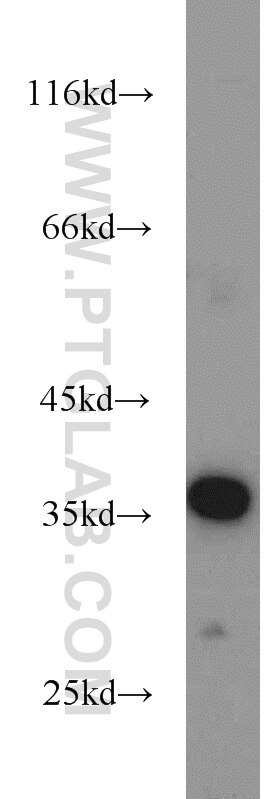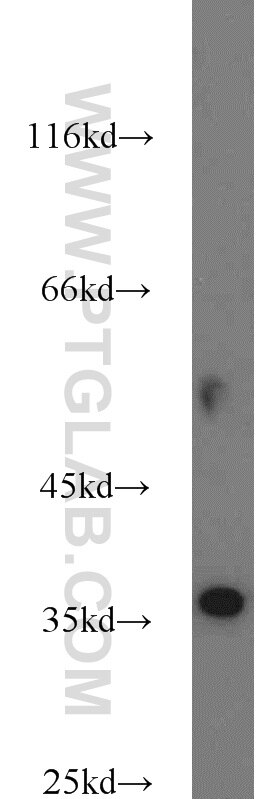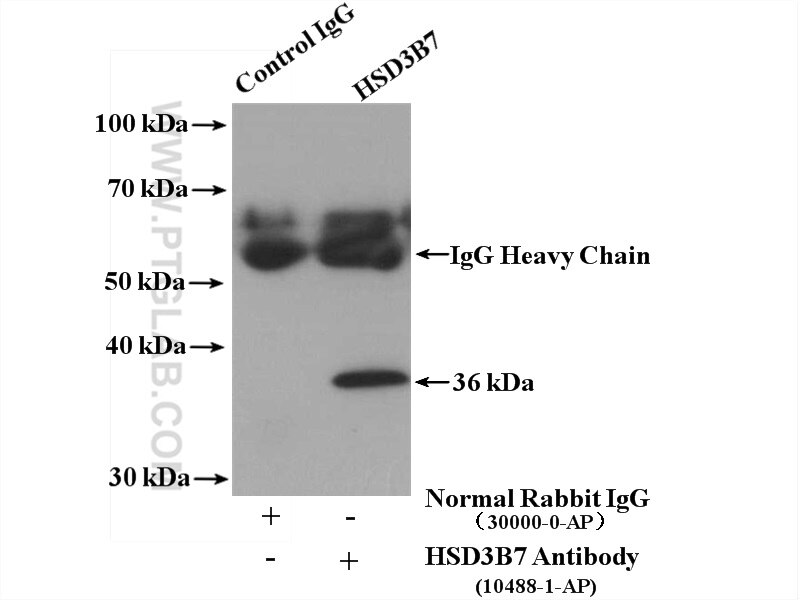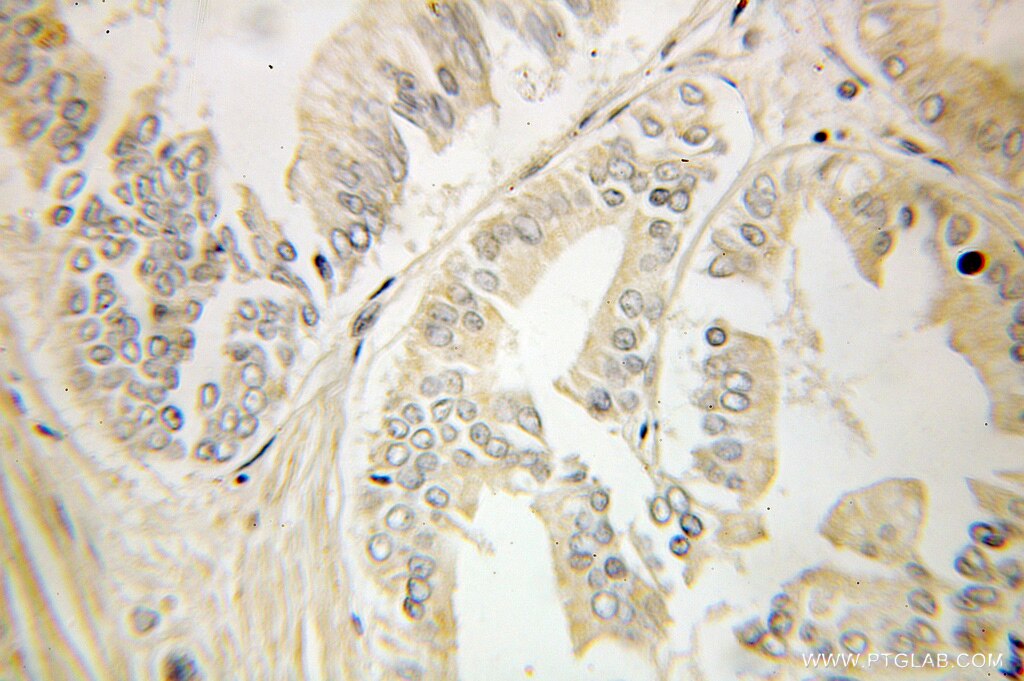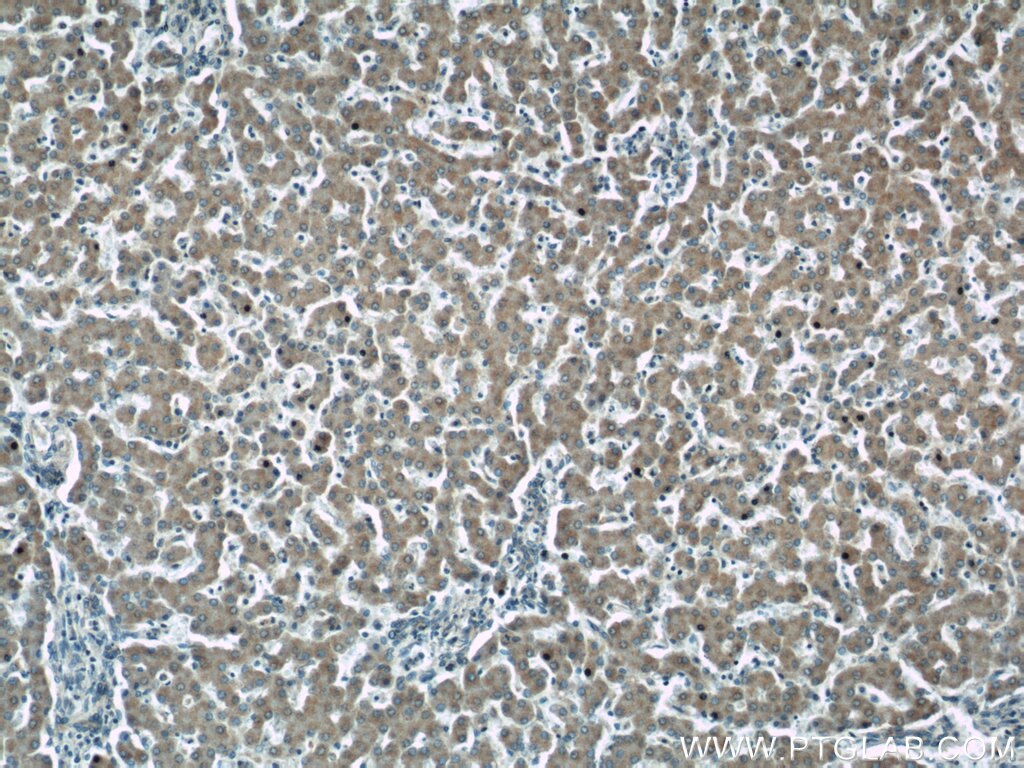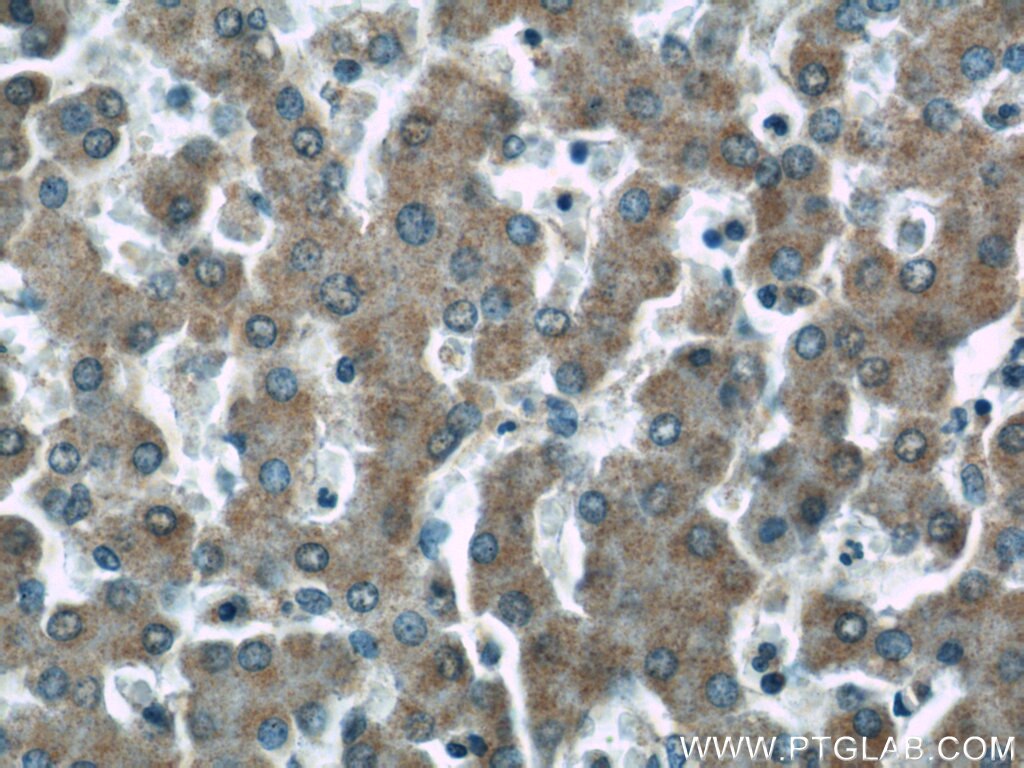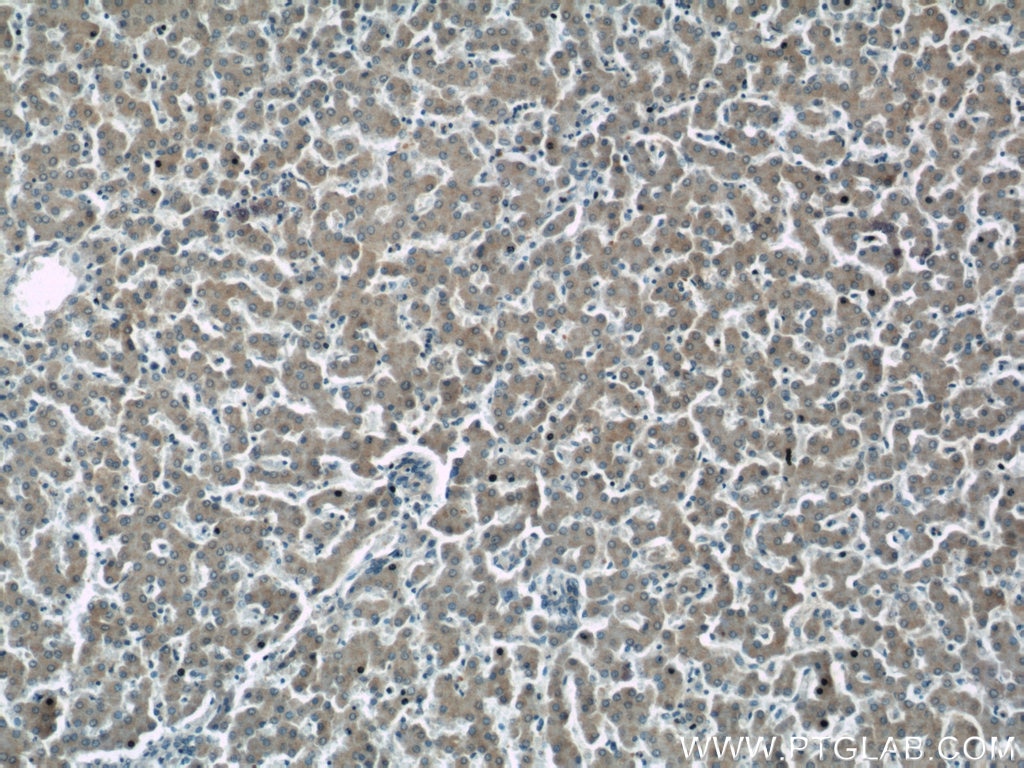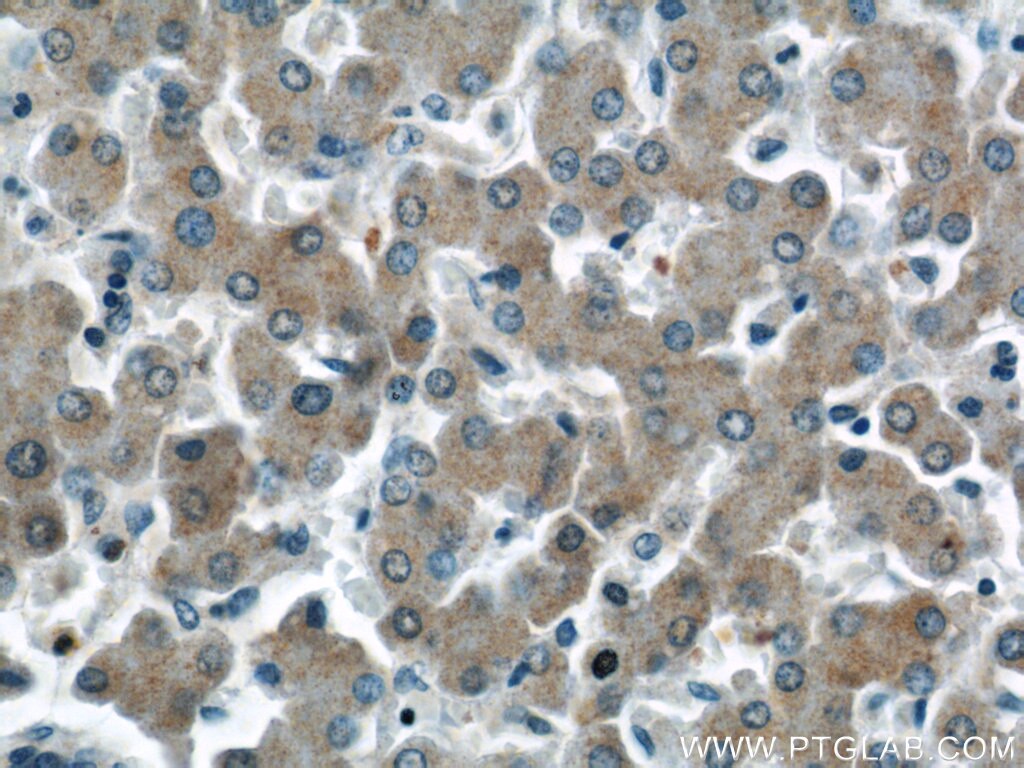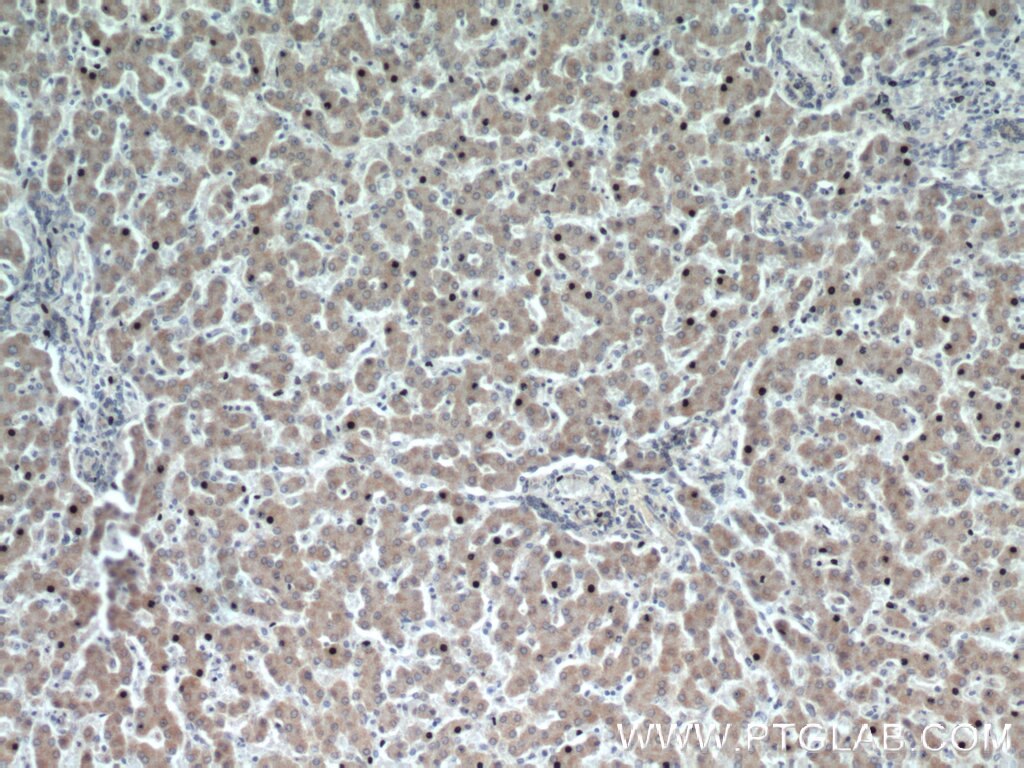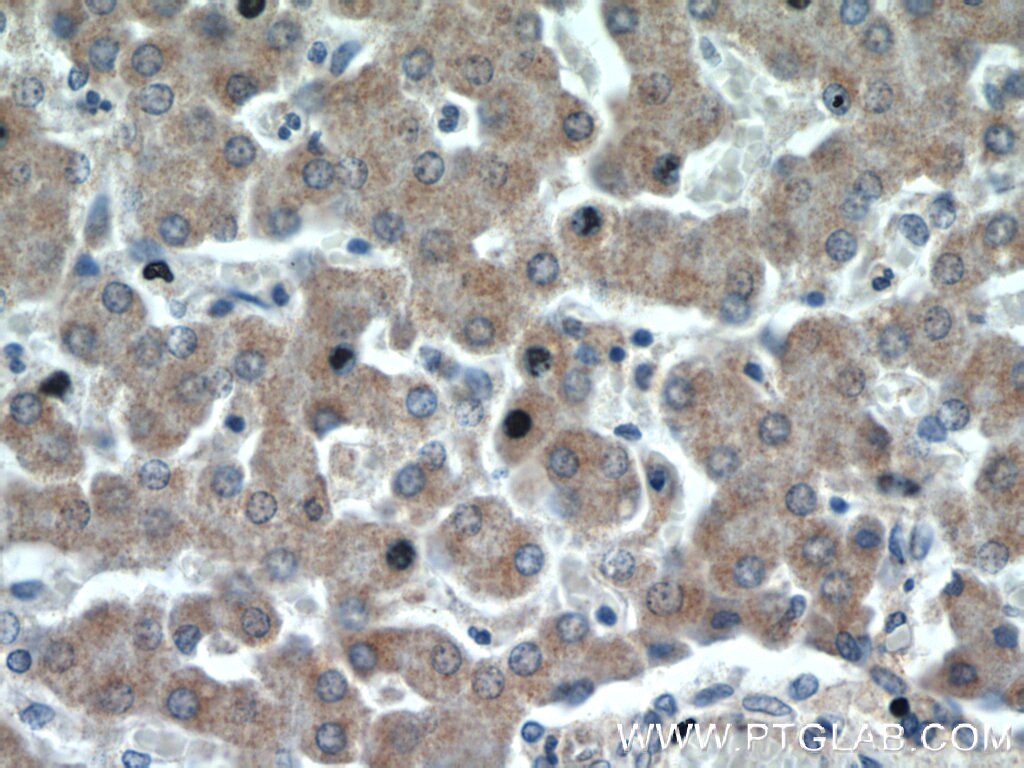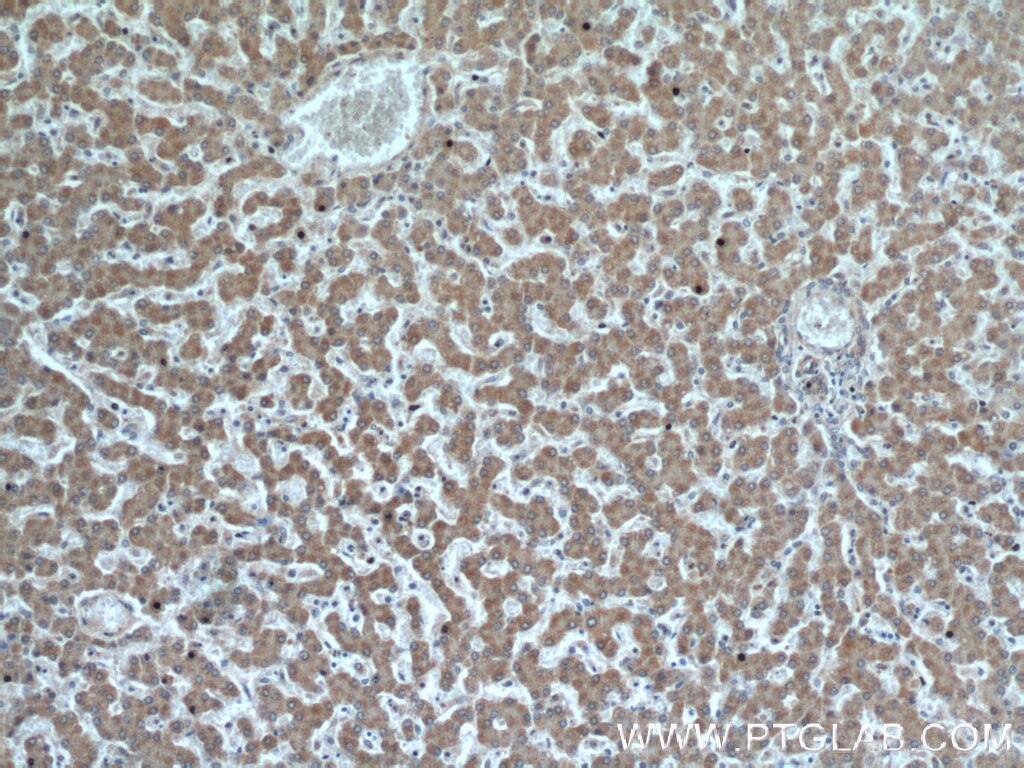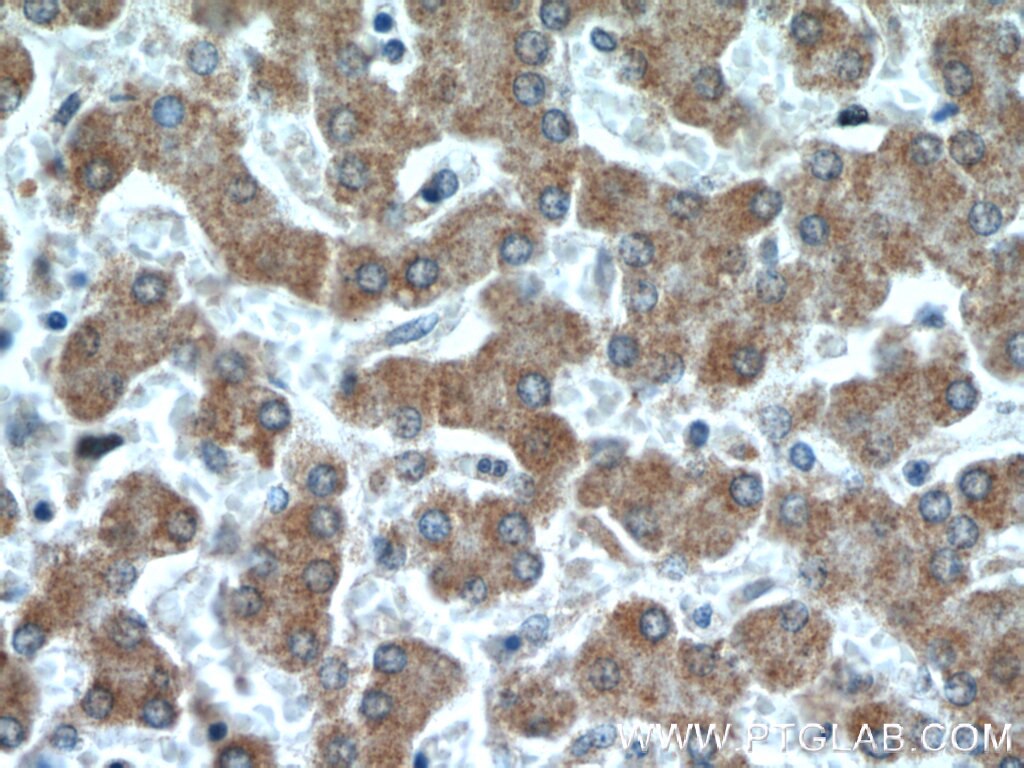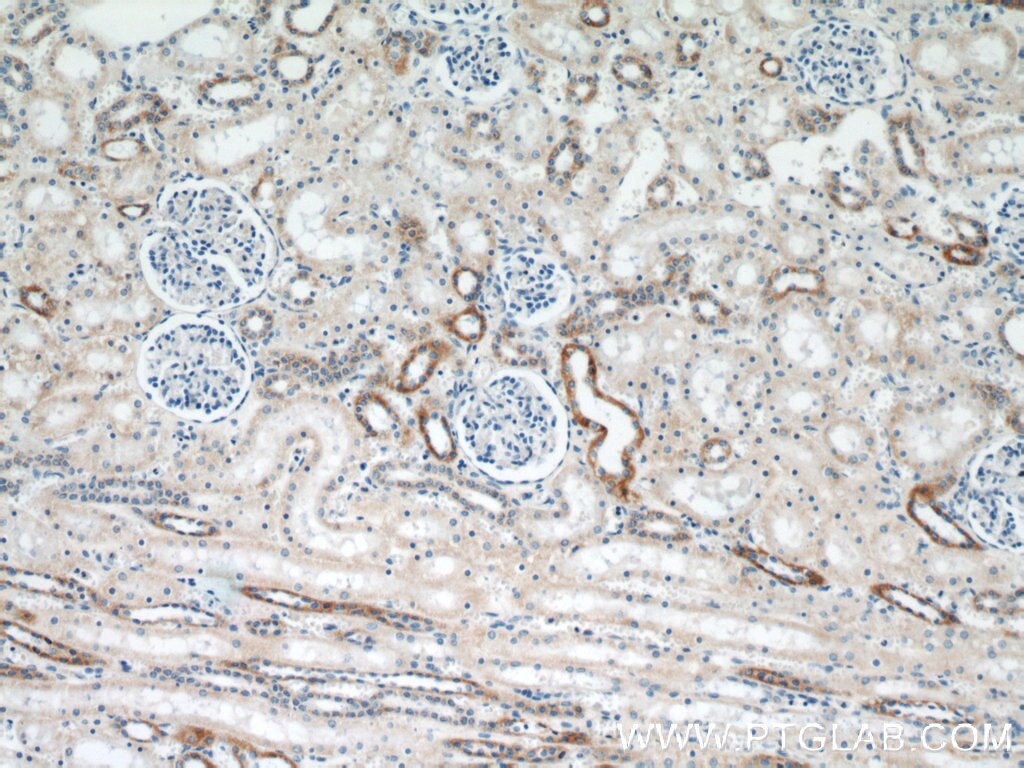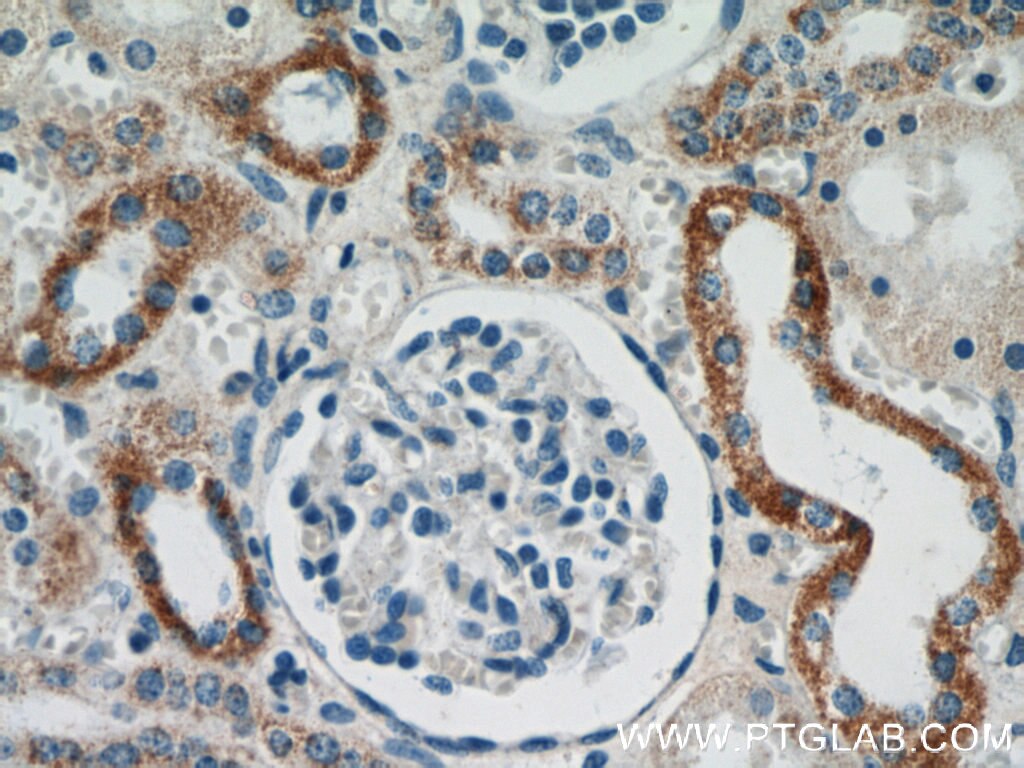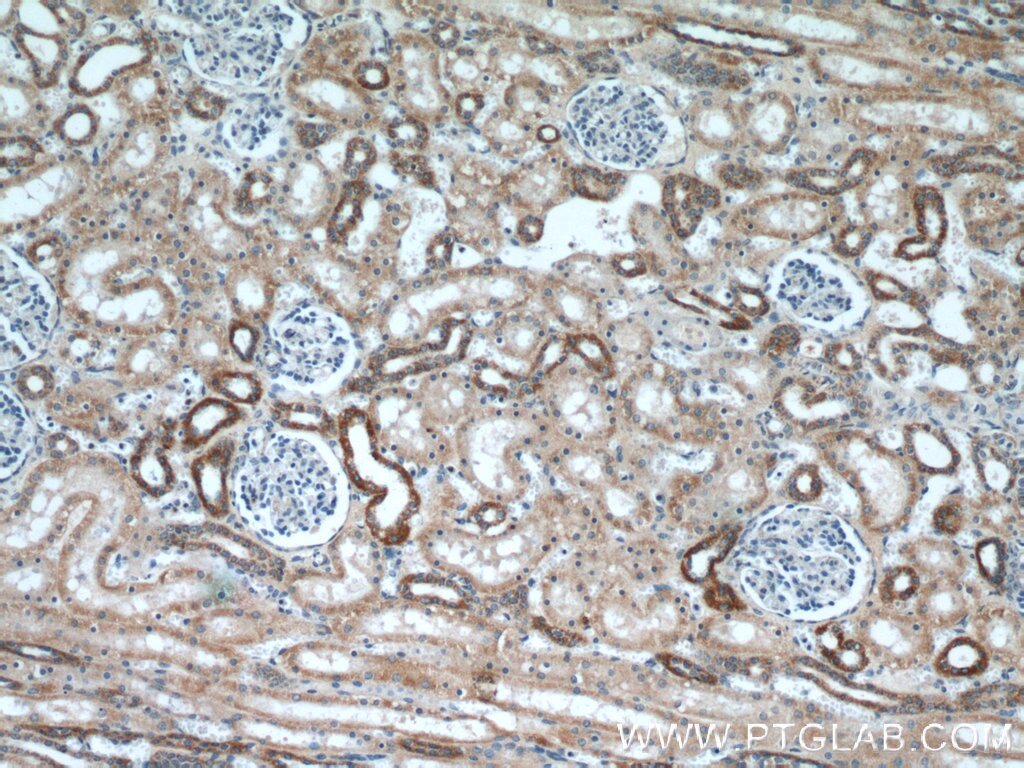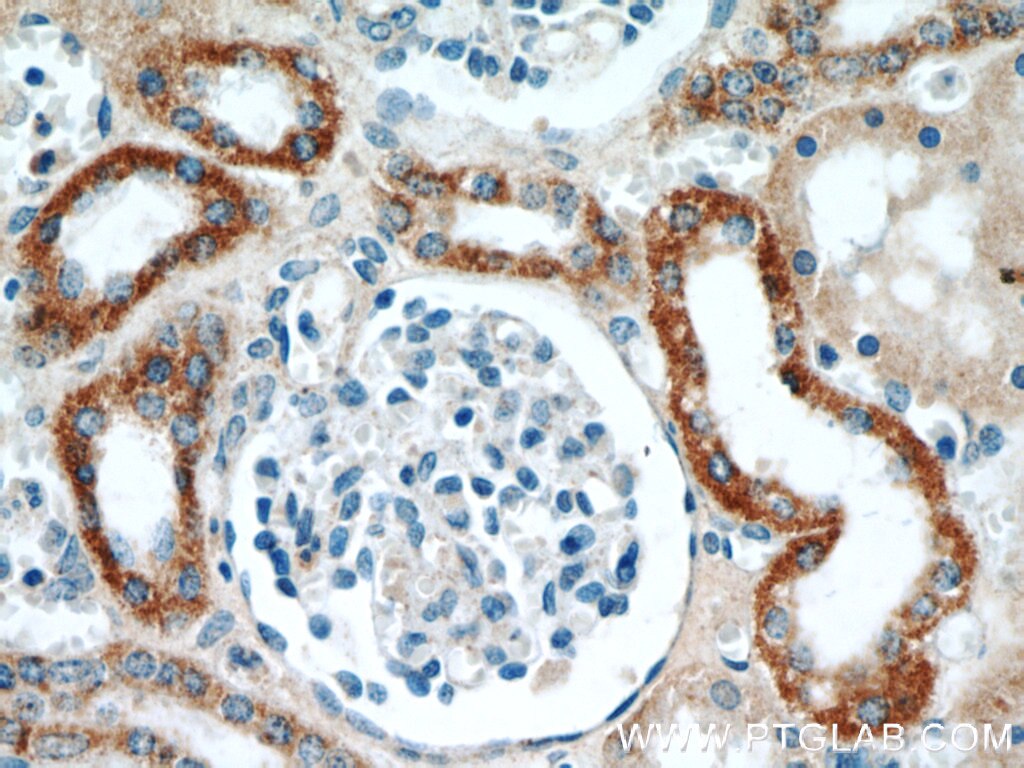Tested Applications
| Positive WB detected in | mouse liver tissue |
| Positive IP detected in | mouse liver tissue |
| Positive IHC detected in | human pancreas cancer tissue, human kidney tissue, human liver tissue Note: suggested antigen retrieval with TE buffer pH 9.0; (*) Alternatively, antigen retrieval may be performed with citrate buffer pH 6.0 |
Recommended dilution
| Application | Dilution |
|---|---|
| Western Blot (WB) | WB : 1:500-1:1000 |
| Immunoprecipitation (IP) | IP : 0.5-4.0 ug for 1.0-3.0 mg of total protein lysate |
| Immunohistochemistry (IHC) | IHC : 1:20-1:200 |
| It is recommended that this reagent should be titrated in each testing system to obtain optimal results. | |
| Sample-dependent, Check data in validation data gallery. | |
Product Information
10488-1-AP targets HSD3B7 in WB, IP, IHC, ELISA applications and shows reactivity with human, mouse samples.
| Tested Reactivity | human, mouse |
| Host / Isotype | Rabbit / IgG |
| Class | Polyclonal |
| Type | Antibody |
| Immunogen | HSD3B7 fusion protein Ag0755 Predict reactive species |
| Full Name | hydroxy-delta-5-steroid dehydrogenase, 3 beta- and steroid delta-isomerase 7 |
| Calculated Molecular Weight | 41 kDa |
| Observed Molecular Weight | 36 kDa |
| GenBank Accession Number | BC004929 |
| Gene Symbol | HSD3B7 |
| Gene ID (NCBI) | 80270 |
| Conjugate | Unconjugated |
| Form | Liquid |
| Purification Method | Antigen affinity purification |
| UNIPROT ID | Q9H2F3 |
| Storage Buffer | PBS with 0.02% sodium azide and 50% glycerol , pH 7.3 |
| Storage Conditions | Store at -20°C. Stable for one year after shipment. Aliquoting is unnecessary for -20oC storage. 20ul sizes contain 0.1% BSA. |
Background Information
HSD3B7(3 beta-hydroxysteroid dehydrogenase type 7) is also named as 3-beta-HSD VII,C(27) 3-beta-HSD and belongs to the 3-beta-HSD family. The 3-beta-HSD enzymatic system plays a crucial role in the biosynthesis of all classes of hormonal steroids and HSD VII is active against four 7-alpha-hydroxylated sterols. This enzyme is expressed predominantly in the liver(PMID:11067870). Defects in HSD3B7 are the cause of congenital bile acid synthesis defect type 1 (CBAS1). It has 2 isoforms produced by alternative splicing.
